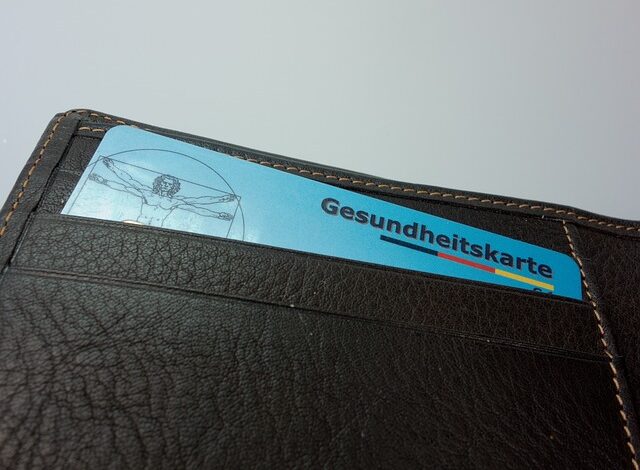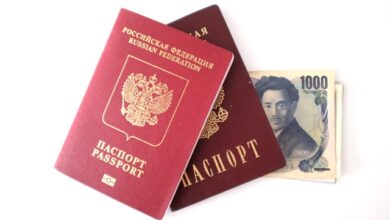Requirements for Retiring in Greece as a Foreigner: A Comprehensive Guide

Greece, with its stunning landscapes, rich history, and Mediterranean lifestyle, is an increasingly popular destination for retirees from around the world. However, retiring in Greece as a foreigner involves understanding specific legal, financial, and logistical requirements. In this guide, we’ll walk you through everything you need to know about retiring in Greece, including visa options, residency permits, healthcare, taxes, and more.
1. Visa and Residency Requirements
To retire in Greece as a foreigner, you’ll need to secure the appropriate visa and residency permit. Here are the key steps:
a. Types of Visas for Retirees
- D-Type National Visa (Long-Stay Visa):
This visa allows non-EU/EEA/Swiss citizens to stay in Greece for more than 90 days. It’s the first step toward obtaining a residency permit. You can apply for this visa at a Greek consulate or embassy in your home country. - Golden Visa Program:
If you’re interested in investing in Greece, the Golden Visa program offers residency rights to foreigners who purchase real estate worth at least €250,000 . This visa grants you and your family members residency permits valid for five years, renewable as long as the property remains in your possession. - Retirement Visa (Non-Dom Tax Regime):
While Greece doesn’t have a specific “retirement visa,” retirees can benefit from the Non-Dom Tax Regime , which offers favorable tax treatment for foreign retirees. Under this scheme, qualifying individuals pay a flat annual fee of €7,000 (plus €2,000 per dependent) on all foreign-sourced income, exempting them from Greek income tax on pensions earned abroad.
b. Applying for a Residency Permit
Once you’ve entered Greece on a D-Type visa, you must apply for a residency permit within 30 days. The process typically involves:
- Submitting proof of sufficient financial means to support yourself without working in Greece.
- Providing health insurance coverage.
- Showing evidence of accommodation (e.g., rental agreement or property ownership).
For EU/EEA/Swiss citizens, no visa is required, but you still need to register with local authorities and obtain a residence certificate if you plan to stay longer than three months.
2. Financial Requirements
To qualify for residency as a retiree, you must demonstrate that you have stable and regular income to support yourself without relying on employment in Greece. Specific financial requirements include:
a. Proof of Income
- Non-EU/EEA retirees must show they receive a minimum monthly income of approximately €2,000 (or higher depending on family size). Acceptable sources of income include:
- Pensions from abroad.
- Rental income from properties outside Greece.
- Investments or savings accounts.
b. Bank Statements
- Provide recent bank statements showing consistent deposits of your pension or other income streams.
c. Investment Options
- Purchasing property under the Golden Visa program not only qualifies you for residency but also serves as a tangible asset that enhances your financial stability.
3. Healthcare Considerations
Access to quality healthcare is critical when planning your retirement. Here’s what you need to know:
a. Public Healthcare System (ESY)
- As a legal resident, you’re entitled to access Greece’s public healthcare system. To enroll, you’ll need:
- A social security number (AMKA).
- Proof of contributions to the Greek social security system (if applicable).
- Note: Contributions are usually tied to employment, so retirees may need private insurance unless they qualify for exemptions.
b. Private Health Insurance
- Many expats opt for private health insurance to ensure comprehensive coverage. Compare policies offered by companies like Allianz, AXA, and Ethniki Asfalistiki.
- If you’re an EU/EEA citizen, bring your European Health Insurance Card (EHIC) to access emergency care during your initial stay.
4. Tax Implications
Understanding Greece’s tax system is essential for effective retirement planning. Here are the key points:
a. Taxation of Foreign Pensions
- Under the Non-Dom Tax Regime , foreign-sourced pensions are taxed at a flat rate of 7% annually after paying the fixed fee of €7,000 (or €9,000 for families).
- Without the Non-Dom status, pensions are subject to progressive income tax rates ranging from 9% to 44% .
b. Property Taxes
- Homeowners in Greece pay an annual property tax called ENFIA, calculated based on the size, location, and value of the property.
c. Capital Gains Tax
- Profits from selling assets (e.g., stocks or real estate) are taxed at 15% .
5. Cost of Living
Greece generally has a lower cost of living compared to Western Europe or North America, making it an attractive option for retirees. Key expenses include:
a. Housing
- Renting a one-bedroom apartment in Athens costs between €500–€800 per month, while smaller towns and islands are significantly cheaper.
- Buying property starts at around €1,500–€2,500 per square meter , depending on the location.
b. Utilities
- Monthly utility bills (electricity, water, heating, etc.) average €100–€150 for a standard household.
c. Groceries and Dining Out
- Supermarket prices are affordable, with a liter of milk costing about €1.20 and a loaf of bread around €0.80 .
- Eating out is reasonably priced; a meal at an inexpensive restaurant costs approximately €10–€15 .
6. Language and Cultural Integration
While many Greeks speak English, especially in tourist areas, learning basic Greek phrases can enhance your experience and help you integrate into the community. Resources like Duolingo, Pimsleur, or local language schools can be invaluable.
Additionally, joining expat groups or participating in cultural activities will help you build connections and feel at home.
7. Legal and Administrative Steps
After settling in Greece, there are several administrative tasks to complete:
a. Register with Local Authorities
- Visit the municipal office (Dimos) to register your address and obtain a tax identification number (AFM).
b. Open a Bank Account
- Bring your passport, residency permit, and proof of address to open a Greek bank account. Popular banks include Piraeus Bank, Alpha Bank, and Eurobank.
c. Obtain a Social Security Number (AMKA)
- Required for accessing healthcare and other services, AMKA can be obtained at a local KEP office.
8. Special Benefits for Retirees
a. Discounts and Perks
- Senior citizens (over 65) often enjoy discounts on transportation, museum entry fees, and cultural events.
b. Golden Visa Advantages
- Beyond residency, the Golden Visa program provides visa-free travel within the Schengen Area, making it easier to explore Europe.



